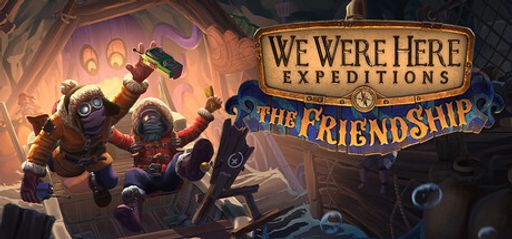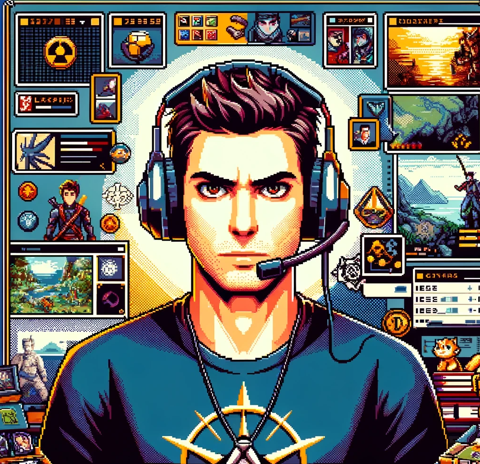 We Were Here Expeditions: The FriendShip by Total Mayhem Games, published by Total Mayhem Games. I loved that the game calls out communication, teamwork, and trust right in the store blurb. Moreover, a few Steam reviews stand out: one said Amazing little game. We finished it in one evening, and another warned players it “helps you figure out how to communicate.” Those comments match my findings. Overall, the experience feels polished and focused. Positive features? Asymmetrical puzzles, walkie-talkie reliance, and a playful grading system tied to your friendship. On the downside, it is short and co-op only, so solo players cannot join. As a completion-focused player, I wanted more collectibles and optional challenge modes. Nevertheless, small studio fact: Total Mayhem Games built its name on puzzle co-op games, so bite-sized expansions fit their iterative design style.
We Were Here Expeditions: The FriendShip by Total Mayhem Games, published by Total Mayhem Games. I loved that the game calls out communication, teamwork, and trust right in the store blurb. Moreover, a few Steam reviews stand out: one said Amazing little game. We finished it in one evening, and another warned players it “helps you figure out how to communicate.” Those comments match my findings. Overall, the experience feels polished and focused. Positive features? Asymmetrical puzzles, walkie-talkie reliance, and a playful grading system tied to your friendship. On the downside, it is short and co-op only, so solo players cannot join. As a completion-focused player, I wanted more collectibles and optional challenge modes. Nevertheless, small studio fact: Total Mayhem Games built its name on puzzle co-op games, so bite-sized expansions fit their iterative design style.
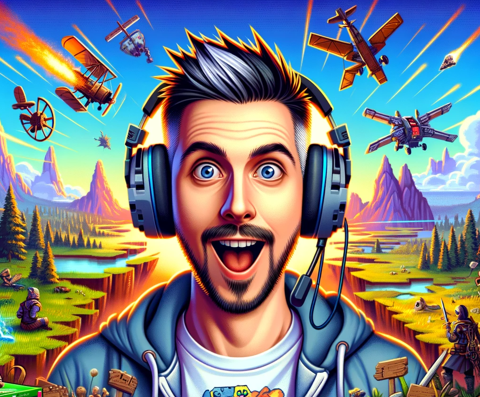 I jumped in expecting classic We Were Here vibes. Right away, the island, abandoned amusement park, and that eerie boat ride hooked me fast. Additionally, the game rewards exploration even in its short run. For example, I found hidden environmental clues that only make sense when you share perspectives with your partner. Controls feel standard and smooth. Most importantly, the walkie-talkie mechanic forces real teamwork. In comparison, it sits well alongside Tick Tock: A Tale for Two and Keep Talking and Nobody Explodes for pure communication-driven fun. However, the mic requirement can cut out casual groups without mics. Studio fact: small indie studios like Total Mayhem often prioritize crossplay and low system requirements to widen their player base.
I jumped in expecting classic We Were Here vibes. Right away, the island, abandoned amusement park, and that eerie boat ride hooked me fast. Additionally, the game rewards exploration even in its short run. For example, I found hidden environmental clues that only make sense when you share perspectives with your partner. Controls feel standard and smooth. Most importantly, the walkie-talkie mechanic forces real teamwork. In comparison, it sits well alongside Tick Tock: A Tale for Two and Keep Talking and Nobody Explodes for pure communication-driven fun. However, the mic requirement can cut out casual groups without mics. Studio fact: small indie studios like Total Mayhem often prioritize crossplay and low system requirements to widen their player base.
 Mechanically, this game is a dream for cooperative design analysis. Since each player sees different puzzle states, you must map information between stations. Consequently, that asymmetry tests precise callouts and structured language. Furthermore, the graded scoring pushes optimization—aim for perfect clarity, not brute force. If you aim to master it, set private rules, like no pointing or shared shorthand. Compared to Portal 2 coop, FriendShip strips combat and expands pure dialogue puzzles. Still, my critique is that I wanted more complex multi-step puzzles for higher skill ceilings. For accessibility, adding optional text cues or difficulty presets could also widen the audience. Design fact: intentional asymmetry often increases replay value, because swapping roles gives different problem-solving paths.
Mechanically, this game is a dream for cooperative design analysis. Since each player sees different puzzle states, you must map information between stations. Consequently, that asymmetry tests precise callouts and structured language. Furthermore, the graded scoring pushes optimization—aim for perfect clarity, not brute force. If you aim to master it, set private rules, like no pointing or shared shorthand. Compared to Portal 2 coop, FriendShip strips combat and expands pure dialogue puzzles. Still, my critique is that I wanted more complex multi-step puzzles for higher skill ceilings. For accessibility, adding optional text cues or difficulty presets could also widen the audience. Design fact: intentional asymmetry often increases replay value, because swapping roles gives different problem-solving paths.
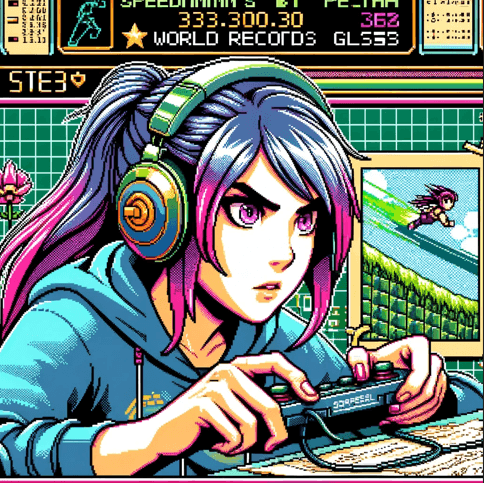 I looked at completion time and optimization. The game times you via the friendship grading system. You can shave minutes by rehearsing efficient speech patterns and task order. The design is very speedrun-friendly: short, repeatable, and with clear checkpoints. My top tip: assign roles fast, clarify labels for objects, and use concise callouts. Replay-wise, chasing perfect grades gives runs a speedrun feel. Critique: no official leaderboards make competitive timing social only. Studio fact: many indie co-op titles omit leaderboards to keep focus on social play, not competition.
I looked at completion time and optimization. The game times you via the friendship grading system. You can shave minutes by rehearsing efficient speech patterns and task order. The design is very speedrun-friendly: short, repeatable, and with clear checkpoints. My top tip: assign roles fast, clarify labels for objects, and use concise callouts. Replay-wise, chasing perfect grades gives runs a speedrun feel. Critique: no official leaderboards make competitive timing social only. Studio fact: many indie co-op titles omit leaderboards to keep focus on social play, not competition.
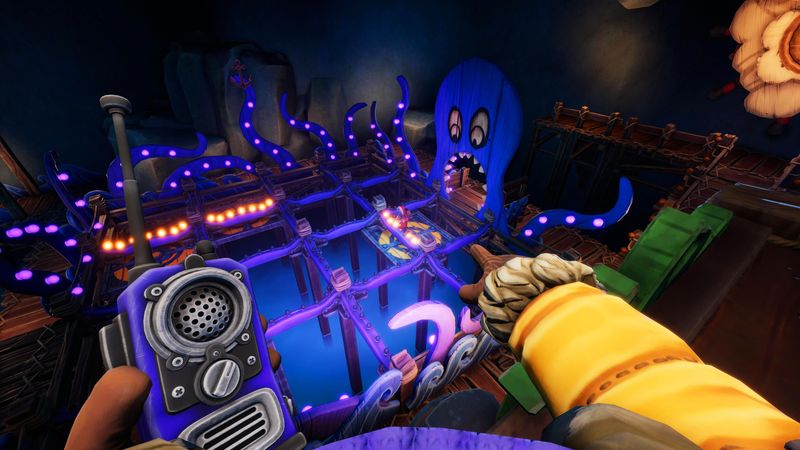
 Storywise, the setup makes sense and stays tight. You pursue a distress call, arrive at the island, then explore the amusement park boat ride. The premise feels playful and personal. Dialogue stays light, letting player voices carry emotional beats. The ending choice and the cheeky friend-ship grading make the theme land. Critique: character arcs are minimal. The game relies on players to create emotional moments. Developer intent seems clear — a short social test rather than a deep narrative. Fun fact: short expedition releases often serve as gateways to larger series entries.
Storywise, the setup makes sense and stays tight. You pursue a distress call, arrive at the island, then explore the amusement park boat ride. The premise feels playful and personal. Dialogue stays light, letting player voices carry emotional beats. The ending choice and the cheeky friend-ship grading make the theme land. Critique: character arcs are minimal. The game relies on players to create emotional moments. Developer intent seems clear — a short social test rather than a deep narrative. Fun fact: short expedition releases often serve as gateways to larger series entries.
 Visuals felt bright but with a moody palette in the amusement park. Colors and lighting guide your eye to puzzle elements. Animations are simple but clear. The experience reminded me of the atmospheric touches in earlier We Were Here titles. Performance held up on mid-range rigs during my play session. Critique: occasional texture pop-in appeared for me, but it did not block puzzles. Tech fact: many indie puzzle games choose art stylization over photorealism to lower performance needs and keep focus on gameplay.
Visuals felt bright but with a moody palette in the amusement park. Colors and lighting guide your eye to puzzle elements. Animations are simple but clear. The experience reminded me of the atmospheric touches in earlier We Were Here titles. Performance held up on mid-range rigs during my play session. Critique: occasional texture pop-in appeared for me, but it did not block puzzles. Tech fact: many indie puzzle games choose art stylization over photorealism to lower performance needs and keep focus on gameplay.
 Audio design deserves praise. The walkie static, background creaks, and timed cues create tension. There’s little voice acting in-game, because the game expects player voice chat. That choice keeps players invested in their own voice roles. Sound cues integrate with puzzles well. My only wish: clearer audio markers for timing-critical steps. Accessibility idea: add subtitles for non-mic play or hearing-impaired players. Industry note: sound design in co-op puzzles often replaces NPC acting with player-driven audio to boost immersion.
Audio design deserves praise. The walkie static, background creaks, and timed cues create tension. There’s little voice acting in-game, because the game expects player voice chat. That choice keeps players invested in their own voice roles. Sound cues integrate with puzzles well. My only wish: clearer audio markers for timing-critical steps. Accessibility idea: add subtitles for non-mic play or hearing-impaired players. Industry note: sound design in co-op puzzles often replaces NPC acting with player-driven audio to boost immersion.
 Regarding characters, you and your partner fill them in. The game uses anonymity as a tool. That lets different players create unique stories. Representation is community-driven. The title keeps character skeletons simple and focuses on interaction. Balance is smart: puzzles scale more by teamwork than solo skill. User feedback praising social play rings true. Critique: players expecting deep NPC lore might feel briefed.
Regarding characters, you and your partner fill them in. The game uses anonymity as a tool. That lets different players create unique stories. Representation is community-driven. The title keeps character skeletons simple and focuses on interaction. Balance is smart: puzzles scale more by teamwork than solo skill. User feedback praising social play rings true. Critique: players expecting deep NPC lore might feel briefed.
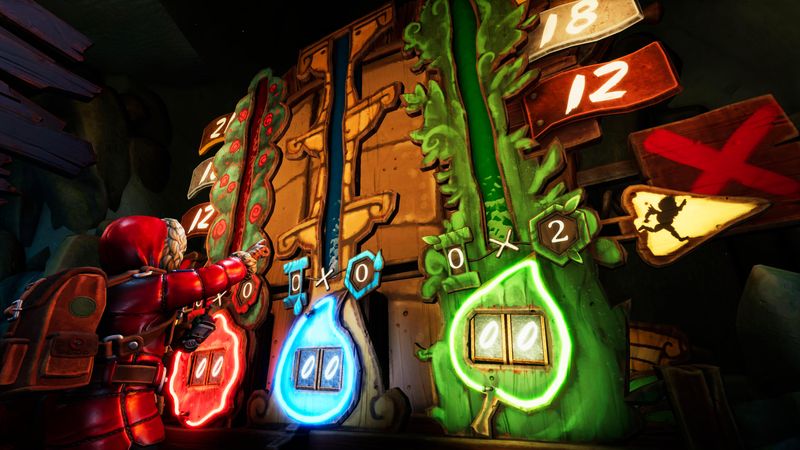
 Challenge balance? Puzzles lean toward logic and communication. No combat. The grading and puzzle variety range from easy to moderately tricky. Some players mentioned difficulty spikes, but those often come from miscommunication, not puzzle unfairness. Accessibility gaps: must-have mic, no solo mode, and few difficulty sliders. I would add hints and alternative input for wider reach.
Challenge balance? Puzzles lean toward logic and communication. No combat. The grading and puzzle variety range from easy to moderately tricky. Some players mentioned difficulty spikes, but those often come from miscommunication, not puzzle unfairness. Accessibility gaps: must-have mic, no solo mode, and few difficulty sliders. I would add hints and alternative input for wider reach.
 Replay value comes from trying with different friends. A Steam review said they’d replay with other friends for other fun evening. That nails it. You can chase a perfect friendship score. The short length works in your favor for repeated runs. Compared to other co-op puzzle games, replayability is strong because social dynamics change each time.
Replay value comes from trying with different friends. A Steam review said they’d replay with other friends for other fun evening. That nails it. You can chase a perfect friendship score. The short length works in your favor for repeated runs. Compared to other co-op puzzle games, replayability is strong because social dynamics change each time.
 For hardcore players, the graded system invites optimization. You can compete with yourself on clarity and time. Unlocks and achievements could boost replay value more. If Total Mayhem releases leaderboards or challenge modes, the game would gain a long tail. Studio insight: indie teams often update these bite-sized games after launch with challenges to extend lifespan.
For hardcore players, the graded system invites optimization. You can compete with yourself on clarity and time. Unlocks and achievements could boost replay value more. If Total Mayhem releases leaderboards or challenge modes, the game would gain a long tail. Studio insight: indie teams often update these bite-sized games after launch with challenges to extend lifespan.
 Final thoughts? We Were Here Expeditions: The FriendShip stands out as a tight co-op puzzle experience from Total Mayhem Games. It succeeds at what it aims for: short, social, and memorable co-op puzzles. It could improve with more accessibility options and competitive features like leaderboards. I recommend it to players who love teamwork puzzles, communication challenges, and casual social nights.
Final thoughts? We Were Here Expeditions: The FriendShip stands out as a tight co-op puzzle experience from Total Mayhem Games. It succeeds at what it aims for: short, social, and memorable co-op puzzles. It could improve with more accessibility options and competitive features like leaderboards. I recommend it to players who love teamwork puzzles, communication challenges, and casual social nights.
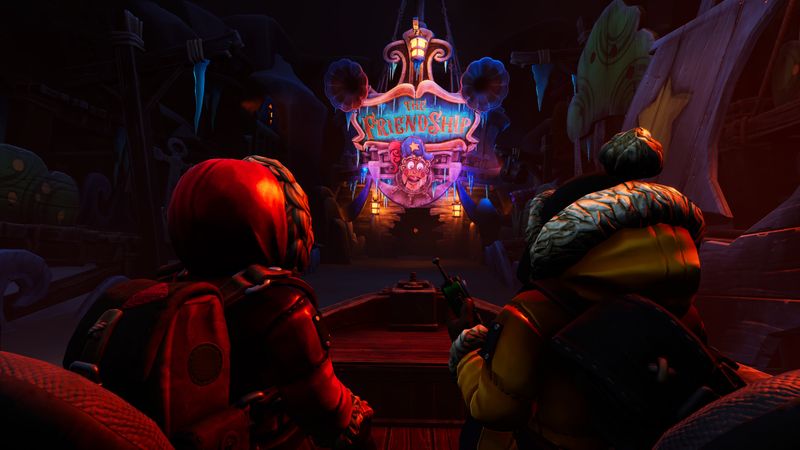
 Looking for more games like your favorite co-op puzzlers? Keep Talking and Nobody Explodes challenges players with intense communication as one defuses bombs while the other reads the manual. Tick Tock: A Tale for Two delivers a hauntingly atmospheric experience where partners must share split information to progress. For deeper mechanics, Portal 2’s Co-op Mode stands out with brilliantly designed puzzles that demand clever teamwork and coordination. These titles are perfect for players who thrive on collaboration and problem-solving.
Looking for more games like your favorite co-op puzzlers? Keep Talking and Nobody Explodes challenges players with intense communication as one defuses bombs while the other reads the manual. Tick Tock: A Tale for Two delivers a hauntingly atmospheric experience where partners must share split information to progress. For deeper mechanics, Portal 2’s Co-op Mode stands out with brilliantly designed puzzles that demand clever teamwork and coordination. These titles are perfect for players who thrive on collaboration and problem-solving.
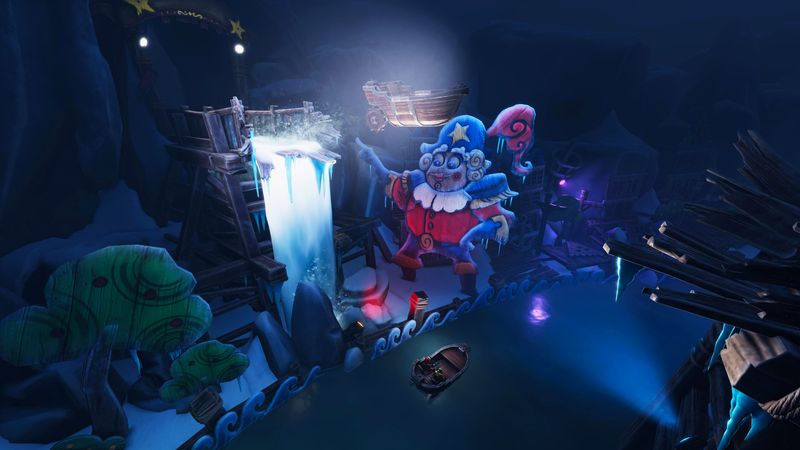
 If you’re looking for even more co-op experiences, A Way Out shines with its gripping story that forces players to work together through split roles and coordinated actions. Meanwhile, the We Were Here series expands on asymmetrical puzzle-solving, offering multiple entries that turn teamwork and communication into longer, more immersive adventures. Both are excellent choices for players who want deeper narrative-driven or extended puzzle-based co-op gameplay.
If you’re looking for even more co-op experiences, A Way Out shines with its gripping story that forces players to work together through split roles and coordinated actions. Meanwhile, the We Were Here series expands on asymmetrical puzzle-solving, offering multiple entries that turn teamwork and communication into longer, more immersive adventures. Both are excellent choices for players who want deeper narrative-driven or extended puzzle-based co-op gameplay.
 For challenge-focused co-op fans, Lovers in a Dangerous Spacetime delivers frantic action where players must coordinate roles to pilot a spaceship, manage weapons, and survive chaotic battles. If you prefer brain-teasing missions, Operation Tango offers asymmetrical spy puzzles where partners take on clear role-based mechanics, relying on precise teamwork and communication. Both games reward quick thinking, sharp coordination, and strong collaboration, making them perfect for players who enjoy fast-paced or high-stakes cooperative challenges.
For challenge-focused co-op fans, Lovers in a Dangerous Spacetime delivers frantic action where players must coordinate roles to pilot a spaceship, manage weapons, and survive chaotic battles. If you prefer brain-teasing missions, Operation Tango offers asymmetrical spy puzzles where partners take on clear role-based mechanics, relying on precise teamwork and communication. Both games reward quick thinking, sharp coordination, and strong collaboration, making them perfect for players who enjoy fast-paced or high-stakes cooperative challenges.
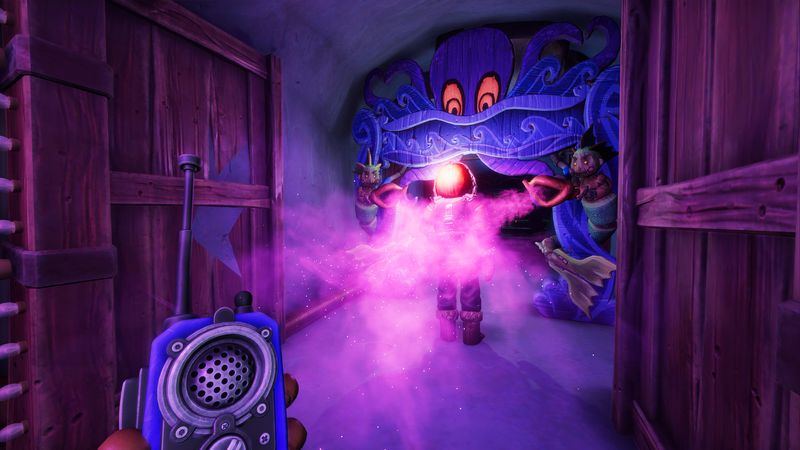
 For speedrun-friendly co-op experiences, Keep Talking and Nobody Explodes is ideal thanks to its short, repeatable attempts that make it perfect for practice runs and refining strategies. Meanwhile, Portal 2 supports a dedicated co-op speedrunning community, where players can push their efficiency, test coordination, and discover clever puzzle skips. Both games offer high replay value for duos looking to master precision, communication, and speed.
For speedrun-friendly co-op experiences, Keep Talking and Nobody Explodes is ideal thanks to its short, repeatable attempts that make it perfect for practice runs and refining strategies. Meanwhile, Portal 2 supports a dedicated co-op speedrunning community, where players can push their efficiency, test coordination, and discover clever puzzle skips. Both games offer high replay value for duos looking to master precision, communication, and speed.
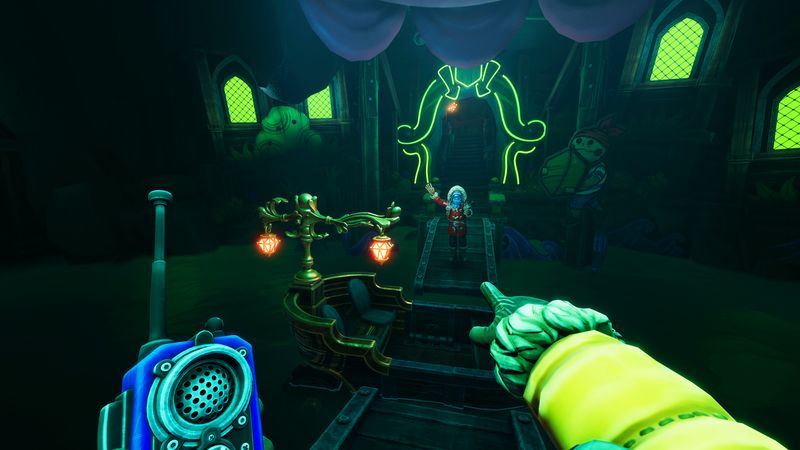
 Final studio fact: Total Mayhem Games has grown its audience by iterating on a simple core concept. Small teams can make big social hits with tight design and smart scope choices.
Final studio fact: Total Mayhem Games has grown its audience by iterating on a simple core concept. Small teams can make big social hits with tight design and smart scope choices.
 Go in with a mic, a friend, and a sense of humor. The FriendShip will test and reward your teamwork.
Go in with a mic, a friend, and a sense of humor. The FriendShip will test and reward your teamwork.
 Set roles fast, speak clearly, and refine phrases. That raises your grades and skills.
Set roles fast, speak clearly, and refine phrases. That raises your grades and skills.
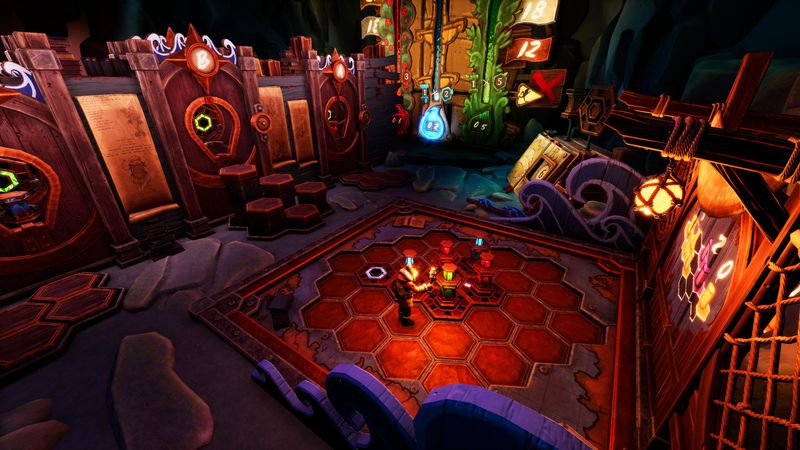
 Run it a few times. Aim for perfect clarity and faster times. You’ll get better and laugh more.
Run it a few times. Aim for perfect clarity and faster times. You’ll get better and laugh more.

